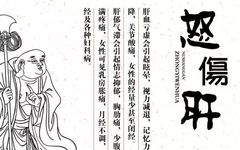Before reading this article, please click on the blue text above, and then click “Follow” so you can continue reading for free. The editor updates health knowledge daily, and everyone is welcome to comment!
In the process of recognizing the surrounding world or interacting with others, people inevitably experience corresponding emotions, which in Traditional Chinese Medicine (TCM) are referred to as the seven emotions: joy (xi), anger (nu), worry (you), thought (si), sadness (bei), fear (kong), and fright (jing). Under normal circumstances, variations in these emotions have little impact on health and do not cause disease. However, excessive emotions triggered by internal or external stimuli can lead to various illnesses.
Firstly, excessive emotions can damage the corresponding organs:
The heart corresponds to joy; excessive joy can harm the heart;
The liver corresponds to anger; excessive anger can harm the liver;
The spleen corresponds to thought; excessive thinking can harm the spleen;
The lungs correspond to sadness and worry; excessive sadness and worry can harm the lungs;
The kidneys correspond to fear; excessive fear can harm the kidneys.
1. Anger causes Qi to rise, anger harms the liver
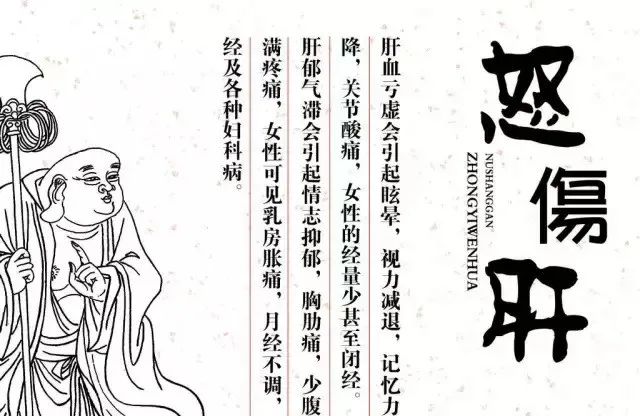
Severe anger often causes liver Qi to rebel, and in severe cases, blood may follow the Qi and rebel. Clinically, this is mainly manifested as: headache, facial redness, irritability, and easy anger; if blood follows Qi and rebels, it can lead to vomiting blood, and in severe cases, fainting or collapse; if liver Qi rebels and invades the spleen, abdominal pain and diarrhea may also be present.
2. Joy causes Qi to relax, joy harms the heart

Excessive joy can scatter the heart Qi or disturb the spirit. Mild cases may present with palpitations, insomnia, shortness of breath, and lack of energy; severe cases may lead to mental disorders, mania, or sudden loss of heart Qi resulting in profuse sweating, weak breath, and faint pulse.
3. Thought causes Qi stagnation, thought harms the spleen
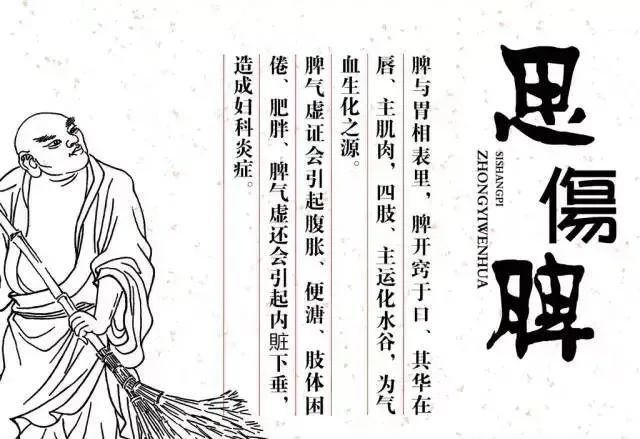
Excessive thinking leads to stagnation of heart and spleen Qi, resulting in impaired transformation and transportation. Clinically, symptoms may include palpitations, insomnia, vivid dreams, mental fatigue, lack of energy, reduced appetite, abdominal distension, and loose stools.
4. Fear causes Qi to descend, fear harms the kidneys
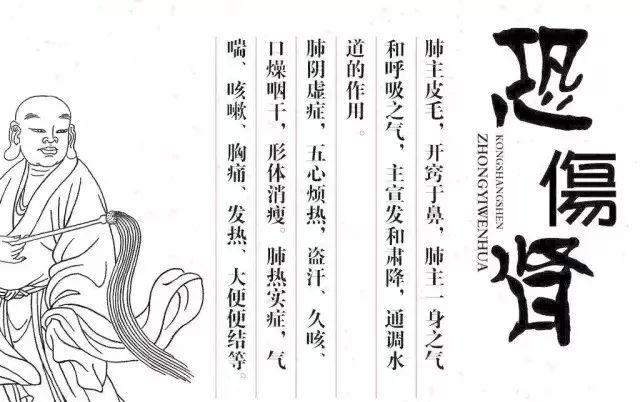
Excessive fear can cause kidney Qi to become unstable, leading to Qi sinking downwards. Clinically, symptoms may include incontinence, nocturnal emissions, and bone atrophy.
5. Sadness (worry) causes Qi to dissipate, sadness harms the lungs
Excessive sadness and worry can deplete lung Qi or disrupt its dispersal and descending functions. Common clinical manifestations include low spirits, lack of energy, shortness of breath, chest tightness, and fatigue.
6. Fright causes Qi to become chaotic
Sudden fright can lead to instability of the spirit and chaotic Qi. Clinically, this may present as palpitations, anxiety, and in severe cases, mental confusion.
Moreover, the intertwining of emotions can easily harm the heart, liver, and spleen: since the heart, liver, and spleen play crucial roles in physiological and emotional activities, emotional injuries are most likely to damage these three organs.
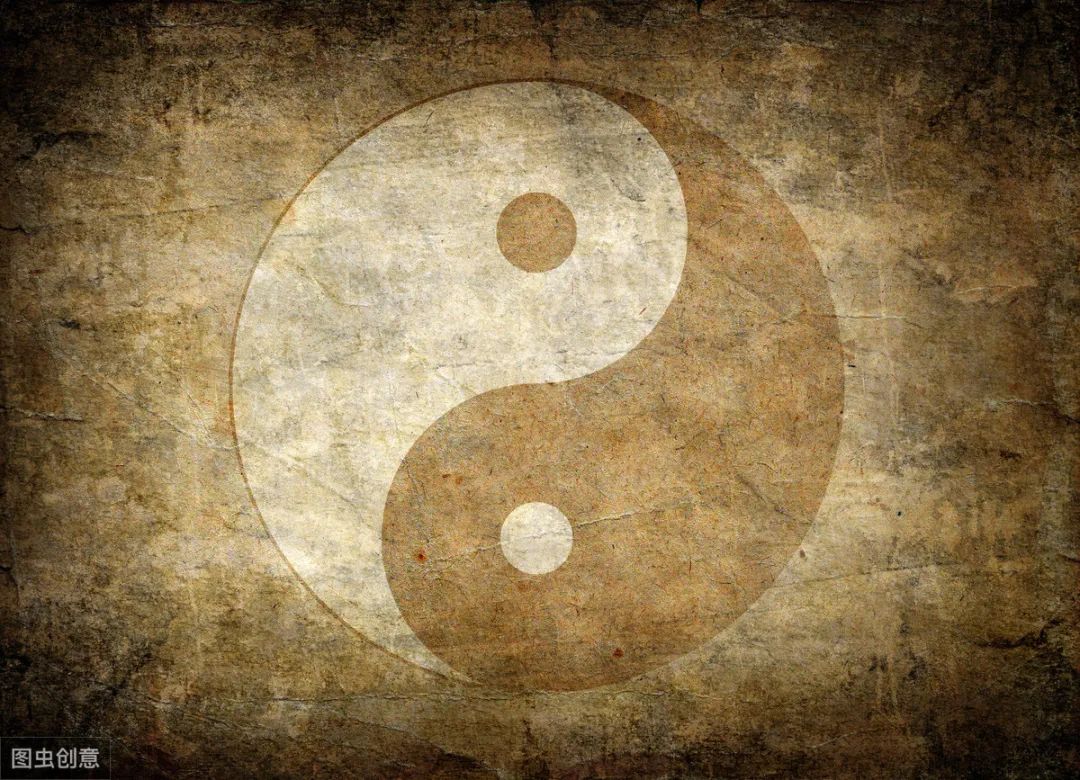
Additionally, excessive emotions can easily damage latent diseases in the organs: latent diseases refer to conditions that exist but do not have obvious clinical manifestations. The organs affected by latent diseases are those where the latent disease resides. Due to the deficiency of righteous Qi, these organs are easily harmed by emotional injuries, making it more likely for latent diseases to manifest or recur when emotional stimuli occur. For example, patients with a history of chest obstruction, diarrhea, or headaches are more likely to experience a recurrence of latent diseases when faced with emotional stress.
Emotions are closely related to our physical health; abnormal emotions can lead to physical illnesses, and conversely, physical issues can also affect our emotions. Therefore, it is essential to maintain an optimistic outlook daily and adjust our emotions to their best state, allowing diseases to naturally stay away from us.
Note:Some text and image resources in this article are sourced from the internet. The purpose of reprinting this article is to convey more information. If there are any errors in source attribution or infringement of your legal rights, please notify us immediately, and we will delete it promptly and apologize.
 Don’t be afraid of insufficient Yang Qi; persist with these 5 habits, and your Yang Qi will gradually recover.Boost Yang Qi starting from the back!Why is your body so “cold”?Blocked meridians and weak body! TCM teaches you 2 effective methods to unblock meridians.The best way to change your fate—boost Yang Qi.Pressing the navel to boost Yang Qi: several massage techniques taught by TCM.A single herb can help you remain calm, free from anxiety, sadness, and depression; a gift for those who care.Is sweating on the scalp a sign of insufficient Yang Qi? Honestly, sweating in these areas of the body is not a good sign.Upper heat and lower cold can be resolved with a single herb that guides fire downwards, especially suitable for those with upper heat and lower cold.
Don’t be afraid of insufficient Yang Qi; persist with these 5 habits, and your Yang Qi will gradually recover.Boost Yang Qi starting from the back!Why is your body so “cold”?Blocked meridians and weak body! TCM teaches you 2 effective methods to unblock meridians.The best way to change your fate—boost Yang Qi.Pressing the navel to boost Yang Qi: several massage techniques taught by TCM.A single herb can help you remain calm, free from anxiety, sadness, and depression; a gift for those who care.Is sweating on the scalp a sign of insufficient Yang Qi? Honestly, sweating in these areas of the body is not a good sign.Upper heat and lower cold can be resolved with a single herb that guides fire downwards, especially suitable for those with upper heat and lower cold.

